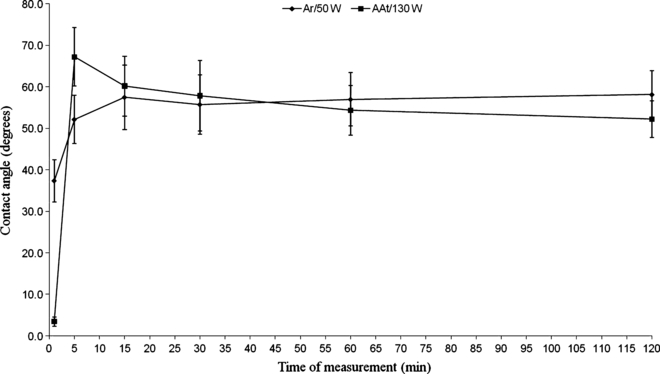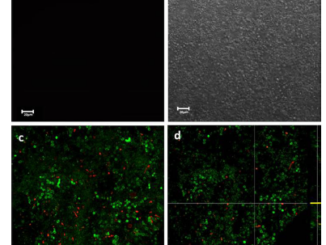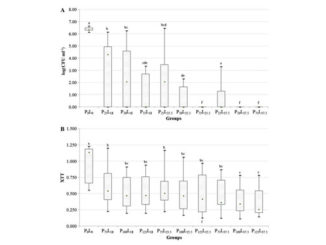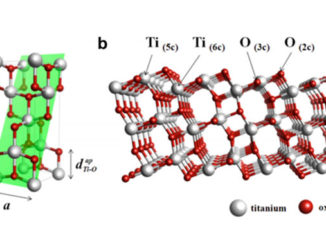
In vitro adhesion of Candida glabrata to denture base acrylic resin modified by glow-discharge plasma treatment
Abstract: This study evaluated the potential of plasma treatments to modify the surface chemistry and hydrophobicity of a denture base acrylic resin to reduce the Candida glabrata adhesion. Specimens (n = 54) with smooth surfaces were made and divided into three groups (n = 18): control – non‐treated; experimental groups – submitted to plasma treatment (Ar/50 W; AAt/130 W). The effects of these treatments on chemical composition and surface topography of the acrylic resin were evaluated. Surface free energy measurements (SFE) were performed after the treatments and after 48 h of immersion in water. For each group, half (n = 9) of the specimens were preconditionated with saliva before the adhesion assay. The number of adhered C. glabrata was evaluated by cell counting after crystal violet staining. The Ar/50 W and AAt/130 W treatments altered the chemistry composition, hydrophobicity and topography of acrylic surface. The Ar/50 W group showed significantly lower C. glabrata adherence than the control group, in the absence of saliva. After preconditioning with saliva, C. glabrata adherence in experimental and control groups did not differ significantly. There were significant changes in the SFE after immersion in water. The results demonstrated that Ar/50 W treated surfaces have potential for reducing C. glabrata adhesion to denture base resins and deserve further investigation, especially to tailor the parameters to prolong the increased wettability.
Author(s): Zamperini, Camila Andrade; Carneiro, Haline de Lima; Rangel, Elidiane Cipriano; et al.
Mycoses
Volume: 56 Issue: 2 Pages: 134-144 Published: 2013
DOI: https://doi.org/10.1111/j.1439-0507.2012.02223.x




